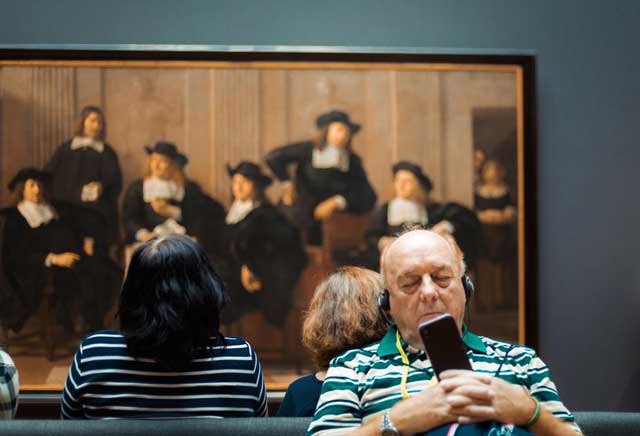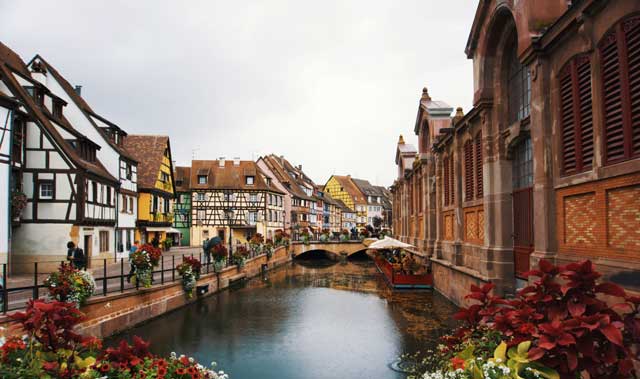“O’Zapft is!” The History of Oktoberfest

Unsplash: Marlene Haiberger
Many people say that Bavaria's beautiful capital city of Munich is a city with a big heart. But what else makes Munich so special? Maybe it’s the Neuschwanstein Castle, which served as the inspiration for the iconic Disney castle that most of us have seen in Disney films growing up. Maybe it’s the Marienplatz which has been known as the city center since 1158. Or maybe because Munich is a hodgepodge of culture and tradition. Whatever it is that you are seeking, there is something in Munich just for you and that’s because München mag dich (Munich loves you).
And if you’re interested in trying out German beer, then Munich’s got that for you too. Munich or München is known for its breweries, beer gardens, and wheat beer (Weissbier or Weißbier). The most popular beer in the city is Helles, which is a pale lager. However, if you want a stronger beer, you might want to consider Starkbier, and it has an alcohol content somewhere between 6% and 9%. Prost!
Today, Munich is a major hub for commerce, education, tourism, innovation, finance, art, and other industries. It is also home to the world’s largest Volksfest, also known as Oktoberfest. Oktoberfest is the biggest beer festival in the world that takes place every year from the end of September to the beginning of October, lasting between 16 to 18 days. The festival has grown over the past two hundred years, now occupying more than 85 acres of land and attracting more than 6 million visitors annually.
History
On October 12, 1810, Crown Prince Ludwig of Bavaria, who would later become King Ludwig I of Bavaria, married Princess Therese von Sachsen-Hildburghausen. And to celebrate the royal event, the people of Munich were invited to take part in the festivities held on the fields in front of the city gates. The meadows were called Theresa’s Fields or Theresienwiese as a tribute to the Crown Princess. The name has stuck, but the locals shortened it to Wies’n. At the end of the ceremony, horse races were organized to commemorate the royal occasion.


The celebrations eventually turned into an annual event, and Oktoberfest became a custom. Today, drinking alcohol has become a part of the Oktoberfest celebration, and during the two-week festival, more than 1 million gallons of beer are consumed.
Trachten und Schützenzug
The Oktoberfest parade always happens on the first Sunday of the event since 1950. The iconic parade is headed by the Münchner Kindl and lasts for around two hours. Münchner Kindl is the coat of arms of Munich which translates to "Munich child." The use of this sign dates back to the 13th century. Behind the Münchner Kindl, the mayor of Munich rides in a Schottenhammel carriage, then followed by many decorated carriages and floats of breweries, restaurateurs, and showmen from all over Germany and the rest of Europe with their costumes and music.
Beer Barrel Tapping
The opening of Oktoberfest is signaled by the mayor of Munich tapping the first beer barrel in the Schottenhammel tent at precisely noon, immediately following the parade. Then, the mayor yells out the Bavarian exclamation of “O’zapft is!” which translates to “It is tapped" in English.
After that, gunshots are fired signifying the serving of beer. And according to tradition, the first liter of beer is served to the Bavarian Minister-President, after which other tents tap the first beer to serve their guests.
Rosa Wiesn
Rosa Wiesn takes place at the Bräurosl (Hacker-Pschorr) tent on the first Sunday of Oktoberfest. The Gay Sunday sometimes referred to as the Gay Oktoberfest, is currently the second-largest LGBTQ+ event all over Europe that hosts three days of shows and music.
The origins of Rosa Wiesn can be traced back to a gathering of Munich Lion's Club (Münchner Löwen Club) members in the 1970s. The group, a gay leather and fetish organization, reserved the Bräurosl tent's balcony but was mistaken for a football club (soccer club). The MLC gathering was then warmly welcomed by the tent's owners and waitstaff. Soon, the event established itself as an annual Oktoberfest event.
Beers of Oktoberfest
Only beer made inside the city limits of Munich and in compliance with the Reinheitsgebot is permitted to be served at the Oktoberfest festival.
- Augustiner-Bräu – the oldest independent brewery in Munich and it was founded in 1328
- Hacker-Pschorr-Bräu – a brewery in Munich was created in 1972 as a result of the merger of Hacker and Pschorr breweries
- Löwenbräu – it is known that Löwenbräu beers were made under the Reinheitsgebot of 1516
- Paulaner – a brewery founded in 1634 by the Minim friars of the Neudeck ob der Au monastery in Munich
- Spatenbräu – Spaten and Franziskaner are two of the beer brands made by the brewery
- Staatliches Hofbräu-München – this brewery is owned by the Bavarian state government and it produces many varieties of beer using the original recipes by Wilhelm V
Timeline
1810 – the first Oktoberfest celebration was held
1811 – Oktoberfest celebration is combined with the state agricultural fair
1818 – the festival introduces food stands and beer for the first time
1819 – the festival's operation is taken over by officials from Munich
1850 – the statue of Bavaria is revealed
1880 – electricity is first used at the festival
1881 – roasted chicken booths open up and bratwurst makes its first appearance
1910 – the celebration of the 100th anniversary featuring record-breaking beer consumption
1913 – the largest tent, Bräurosl, was built with 12,000 seats
1914 to 1918 – celebration canceled due to the world war
1939 to 1945 – celebration canceled due to the world war
1950 – the event of tapping the first keg was started by Munich's mayor, Thomas Wimmer, shouting "O’zapft is!"
1980 – near the main entrance, a bomb exploded, killing 13 people and injuring over 200 more
1985 – a record-breaking 7.1 million visitors came to celebrate the 175th anniversary of Oktoberfest
2010 – for the 200th anniversary, officials hosted a historical area featuring horse racing and costumes
2011 – 7.5 million liters of beer were consumed
2020 – celebration canceled due to the coronavirus pandemic
2021 – celebration canceled due to the coronavirus pandemic
2022 – 187th celebration of Oktoberfest
Get Beelinguapp

